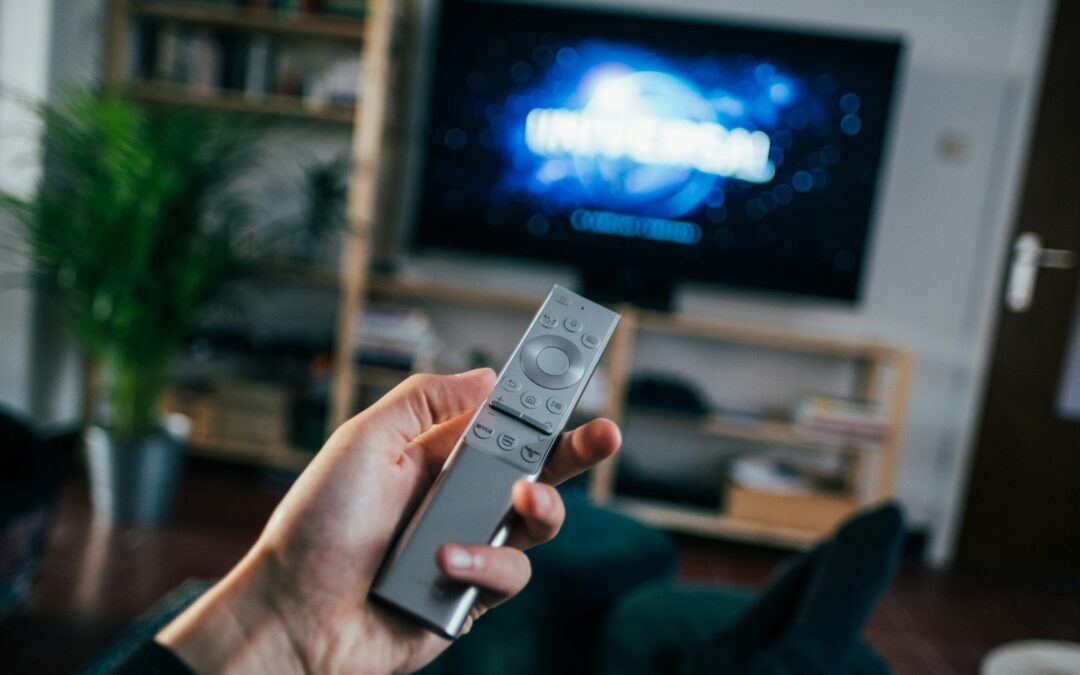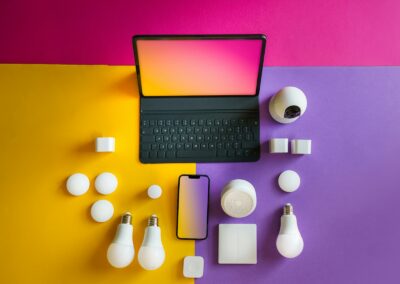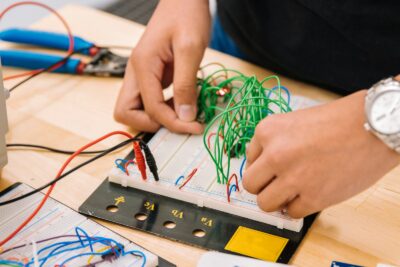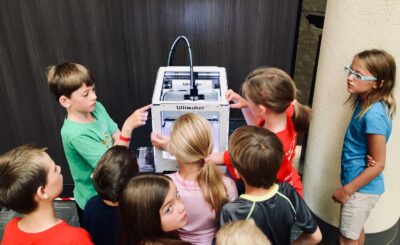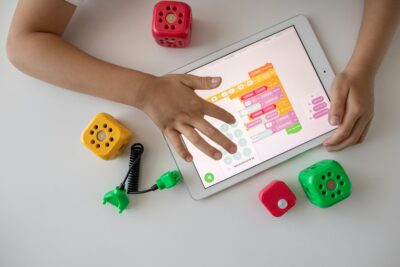Transforming Home Education with AI and IoT
AI-Driven Personalized Learning
AI and IoT in home education are transforming the landscape of personalized learning for both children and adults. By leveraging artificial intelligence (AI), educational platforms can tailor learning experiences to the unique needs and preferences of each learner. This personalization can significantly enhance engagement and retention, making learning more effective and enjoyable.
In Saudi Arabia and the UAE, where there is a strong focus on technological advancement and education, integrating AI into home education can address the diverse needs of learners. AI-driven platforms can assess a learner’s strengths and weaknesses, providing customized content that adapts in real-time. For example, if a student struggles with a particular math concept, the AI system can offer additional resources and practice problems tailored to that specific area.
Moreover, AI can facilitate continuous assessment and feedback, allowing educators and parents to track progress and make informed decisions about the learning path. This data-driven approach ensures that learners receive the support they need, precisely when they need it, fostering a more inclusive and adaptive educational environment.
IoT-Enabled Smart Learning Environments
The Internet of Things (IoT) plays a pivotal role in creating smart learning environments that enhance home education. IoT devices, such as smart speakers, interactive whiteboards, and connected tablets, can provide a seamless and immersive learning experience. These devices can communicate with each other, creating an integrated ecosystem that supports various educational activities.
In regions like Dubai and Riyadh, where smart city initiatives are already in place, extending these technologies to home education can further drive innovation. For instance, IoT-enabled sensors can monitor a student’s interaction with learning materials, providing insights into their engagement levels and identifying areas that require more attention. This real-time data can help educators personalize instruction and improve learning outcomes.
Additionally, IoT devices can facilitate remote learning by connecting students with teachers and peers in a virtual classroom environment. This connectivity ensures that learning continues uninterrupted, regardless of physical location, making education more accessible and flexible. By embracing IoT technologies, home education can become more dynamic, interactive, and tailored to individual learning styles.
Enhancing Educational Content with AI and IoT
AI and IoT can significantly enhance the quality and variety of educational content available for home education. AI algorithms can curate and recommend high-quality resources, such as videos, articles, and interactive simulations, based on the learner’s interests and academic goals. This personalized content delivery ensures that students remain engaged and motivated throughout their learning journey.
Incorporating IoT devices into home education allows for interactive and hands-on learning experiences. For example, virtual reality (VR) headsets can transport students to historical events or scientific laboratories, providing immersive learning experiences that traditional methods cannot offer. These interactive tools can make complex concepts more tangible and easier to understand, fostering a deeper appreciation for the subject matter.
For business executives, mid-level managers, and entrepreneurs in Saudi Arabia and the UAE, investing in AI and IoT technologies for home education can lead to significant advancements in workforce development. By nurturing a generation of tech-savvy and well-educated individuals, these technologies can drive economic growth and innovation in various sectors.
Challenges and Solutions in Implementing AI and IoT in Home Education
Addressing Privacy and Security Concerns
While the benefits of AI and IoT in home education are substantial, there are also challenges to consider, particularly regarding privacy and security. The collection and analysis of personal data by AI systems and IoT devices raise concerns about data protection and unauthorized access. Ensuring the privacy and security of learners’ information is paramount to gaining the trust of parents and educators.
In regions like Dubai and Riyadh, where data protection regulations are becoming increasingly stringent, implementing robust security measures is essential. This includes encrypting data, using secure communication protocols, and providing users with control over their data. By addressing these concerns proactively, educational technology providers can create a safe and secure learning environment.
Moreover, transparent policies and practices regarding data usage can build trust among users. Educators and parents should be informed about how data is collected, stored, and used to enhance the learning experience. By prioritizing privacy and security, the adoption of AI and IoT technologies in home education can be accelerated, ensuring widespread acceptance and utilization.
Ensuring Equal Access to Technology
Another challenge in implementing AI and IoT in home education is ensuring equal access to technology for all learners. Disparities in access to devices and reliable internet connectivity can exacerbate educational inequalities, leaving some students at a disadvantage. Bridging this digital divide is crucial for the successful integration of these technologies.
In Saudi Arabia and the UAE, where there is a commitment to improving education for all, initiatives to provide devices and internet access to underserved communities can make a significant impact. Public-private partnerships can play a vital role in funding and distributing technology, ensuring that every student has the opportunity to benefit from AI and IoT-enhanced education.
Additionally, developing affordable and scalable solutions is essential for widespread adoption. Educational technology providers should focus on creating cost-effective devices and platforms that can be easily integrated into various learning environments. By making technology accessible to all, we can ensure that the benefits of AI and IoT in home education are realized universally.
Training Educators and Parents
For AI and IoT technologies to be effectively implemented in home education, it is crucial to provide adequate training for educators and parents. Understanding how to use these technologies and integrate them into the learning process is essential for maximizing their potential.
In regions like Riyadh and Dubai, where educational excellence is a priority, investing in professional development programs for teachers can ensure they are equipped to harness the power of AI and IoT. These programs can cover topics such as data analysis, personalized learning strategies, and the use of interactive tools, enabling educators to create engaging and effective learning experiences.
Similarly, providing resources and support for parents can help them navigate the new landscape of home education. Workshops, online tutorials, and user-friendly guides can empower parents to take an active role in their children’s education, fostering a collaborative and supportive learning environment.
Conclusion: Embracing AI and IoT for a Brighter Educational Future
In conclusion, the integration of AI and IoT in home education offers immense potential for creating personalized and effective learning environments. By leveraging these technologies, regions like Saudi Arabia and the UAE can drive educational innovation and excellence, preparing future generations for success in a rapidly changing world. For business executives, mid-level managers, and entrepreneurs, investing in AI and IoT for education is not only a strategic move but also a commitment to shaping a brighter and more inclusive future. By addressing challenges such as privacy, access, and training, we can ensure that the benefits of these technologies are realized by all, paving the way for a new era of smart and sustainable education.
#AIinEducation #IoTforLearning #SmartEducation #EducationalTechnology #BusinessSuccess #Leadership #ManagementSkills #ProjectManagement #SaudiArabia #UAE #Riyadh #Dubai

